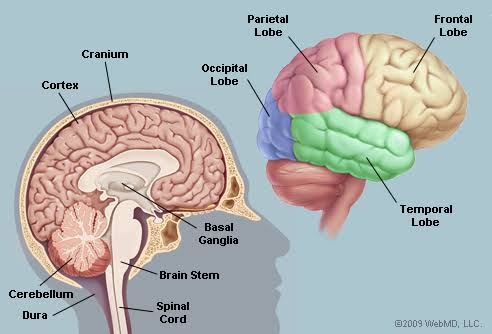profile/7002JPEG_210227002122032.jpg
Odera63

Powerful Health Benefits Of Moringa Leaf
~3.8 mins read
Moringa leaf also which it's botanical name is "Oleifera" is a leaf that grows on the tree of a Moringa plant, which doesn't bear fruits.
It's a popular learn in most of the west African countries and it has some powerful health benefits, which I am going to share with us today.
This moringa leaf have been tested by some traditional herbalists, which they found it to be active and works very well. Without wasting our time with my boring and long article, I am going to list few of the benefits quick below.
Moringa oleifera is a plant that has been praised for its health benefits for thousands of years, expecially in the western African regions.
It is very rich in healthy antioxidants and bioactive plant compounds.
So far, scientists have only investigated a fraction of the many reputed health benefits.
Here are 4 health benefits of Moringa oleifera that are supported by scientific research and traditional herbalists.
1. Morning Oleifera is very Nutricious
Moringa is a fairly large tree native to North India.
It goes by a variety of names, such as drumstick tree, horseradish tree or ben oil tree.
Almost all parts of the tree are eaten or used as ingredients in traditional herbal medicines.
This especially applies to the leaves and pods, which are commonly eaten in parts of India and Africa.
Protein: 2 grams
Vitamin B6: 19% of the RDA
Vitamin C: 12% of the RDA
Iron: 11% of the RDA
Riboflavin (B2): 11% of the RDA
Vitamin A (from beta-carotene): 9% of the RDA
Magnesium: 8% of the RDA
In Western countries, the dried leaves are sold as dietary supplements, either in powder or capsule form.
Compared to the leaves, the pods are generally lower in vitamins and minerals. However, they are exceptionally rich in vitamin C. One cup of fresh, sliced pods (100 grams) contains 157% of your daily requirement.
The diet of people in developing nations sometimes lacks vitamins, minerals and protein. In these countries, Moringa oleifera can be an important source of many essential nutrients.
However, there is one downside: Moringa leaves may also contain high levels of antinutrients, which can reduce the absorption of minerals and proteinTrusted Sour.
Another thing to keep in mind is that taking Moringa oleifera supplements in capsules won’t supply a large number of nutrients.
The amounts are negligible compared to what you consume if you eat a balanced diet based on whole foods.
2. Moringa Oleifera is Rich in Antioxidants:
Antioxidants are compounds that act against free radicals in your body.
levels of free radicals may cause oxidative stress, which is associated with chronic diseases like heart disease and type 2 diabetes.
Several antioxidant plant compounds have been found in the leaves of Moringa oleifera.
Quercetin: This powerful antioxidant may help lower blood pressure.
Chlorogenic acid: Also found in high amounts in coffee, chlorogenic acid may help moderate blood sugar levels after meals.
One study in women found that taking 1.5 teaspoons (7 grams) of moringa leaf powder every day for three months significantly increased blood antioxidant levels.
Moringa leaf extract may also be used as a food preservative. It increases the shelf life of meat by reducing oxidation.
3. Moringa May Lower Blood Sugar Levels:
High blood sugar can be a serious health problem. In fact, it’s the main characteristic of diabetes.
Over time, high blood sugar levels raise the risk of many serious health problems, including heart disease. For this reason, it’s important to keep your blood sugar within healthy limits.
Interestingly, several studies have shown that Moringa oleifera may help lower blood sugar levels.
However, most of the evidence is based on animal studies. Only a few human-based studies exist, and they’re generally of low quality.
One study in 30 women showed that taking 1.5 teaspoons (7 grams) of moringa leaf powder every day for three months reduced fasting blood sugar levels by 13.5%, on average (16).
Another small study in six people with diabetes found that adding 50 grams of moringa leaves to a meal reduced the rise in blood sugar by 21% (21).
Scientists believe these effects are caused by plant compounds such as isothiocyanates.
4. Moringa oleifera May Reduce Inflammation:
Inflammation is the body’s natural response to infection or injury.
It’s an essential protective mechanism but may become a major health issue if it continues over a long period of time.
In fact, sustained inflammation is linked to many chronic health problems, including heart disease and cancer.
Most whole fruits, vegetables, herbs and spices have anti-inflammatory properties. However, the degree to which they can help depends on the types and amounts of anti-inflammatory compounds they contain.
Scientists believe that isothiocyanates are the main anti-inflammatory compounds in moringa leaves, pods and seeds.
But so far, research has been limited to test-tube and animal studies. It remains to be seen if Moringa oleifera has similar anti-inflammatory effects in humans.
profile/7002JPEG_210227002122032.jpg
Odera63

Read: 13 Daily Habits That Damage The Brain
~4.9 mins read
Why you should Take Care of your Brain?A habit is a regular practice, that most of us are dependent on. Often, we don’t realize the cause nor its effects. Some every day, seemingly harmless habits can be so bad that they can cause lasting brain damage.
The human brain is the most important organ of our body and we all fail to think that the brain also requires exercise or training and nutrition for it to function well. Thus, forming good habits and avoiding the following bad habits will prevent brain damage and keep it healthy.
What are the Causes of Brain Damage?
1. Skipping Breakfast:
Our brain also needs appropriate nutrients at the appropriate time to function its best.
Due to a fast paced lifestyle, most of us avoid or end up skipping our breakfast to save some time in the early hours of the day. This leads to low sugar supply and poor nutrient supply to the brain. The brain needs pure glucose to function.
Poor nutrition can have long term harmful effects on the brain like degeneration of the brain cells.
2. Over Eating:
It’s said that, “too much of anything is bad”. The same applies to our brain too. We tend to overeat, if the brain is not functioning normally and vice versa, over-eating leads to brain damage.
Over-eating leads to deposition of cholesterol plaques and thickening of blood vessels of the brain causing reduced blood supply to brain cells. This can cause serious damage to the normal functioning of the brain. It is found that overeating leads to Alzheimer’s disease.
Over-eating leads to obesity which in turn damages our self-image and self-confidence and can lead to depression and other psychological problems.
3. Lack of Sleep:
Sleep deprivation hinders the brain’s ability to perform normally. If you have ever lost your way home or forgotten your keys somewhere and cannot recollect where, then lack of sleep has probably been the culprit behind this temporary memory loss. Sleep deprivation leads to cognitive issues.
Without enough sleep, certain brain cells die and it then becomes harder for you to remember things. Psychological issues can also crop up due to bad sleep or sleep disturbances. So make sure you get your daily dose of 7 hours of beauty, as well brain-friendly sleep.
4. Eating Sugary Foods:
Knowingly or sometimes unknowingly, we all consume sugar in most of our food and beverages.
High consumption of refined sugars is known to destroy the ability of the brain and body to absorb proteins and nutrients. Poor nutrition will lead to malnourishment and brain disorders like poor memory, learning disorders, hyperactivity and depression.
So, the next time you add a large coke to your happy meal, think again because it’s loaded with nearly 20 spoonfuls of sugar!
5. Smoking:
This is probably one of the most harmful habits that we indulge in, as smoking not only causes lung diseases or heart diseases, but it also leads to shrinkage of multiple cells in the brain and can lead to problems like dementia, Alzheimer’s and may be even death.
Excessive smoking indirectly causes neuro-inflammation which can cause an autoimmune disorder called Multiple Sclerosis (MS).
6. Covering the Head While Sleeping:
Sleeping with the head covered leads to increase in concentration of carbon dioxide and it further reduces the oxygen concentration in the blood.
If the oxygen supply is poor, the brain functioning capacity reduces. You may feel suffocated and sleep deprived leading to fatigue and drowsiness.
7. Working When Sick:
We often fall ill when we are overworked. If during sickness too we continue working, then the brain’s efficacy is bound to take a dramatic hit. This will only add to the stress.
When we are ill, the brain and body are already working extra hard to cope with the infection. Working on a sick day will only to add to the burden. So take a break, relax, recuperate.
8. Lack of Socializing:
Socializing, talking, encourages growth and development of the brain. Intellectual conversations strengthen the brain and improve its capacity to work.
You can increase your creativity by meeting new people and making new friends. Socializing or interacting is also a great way to express yourself freely. If there is no socializing or if communication is low, you might feel low and depressed.
9. No Exercise:
As the saying goes, “all work and no play make Jack a dull boy”. Exercise makes you more flexible and increases mobility. Without enough exercise the mobility and brain’s power of movement reduces, and decreases stability and motor skills.
Studies have shown exercise help to keep us younger by releasing happy hormones called endorphins.
Not just the brain, but exercise strengthens your heart and lungs too. Do you need more reason to exercise?
10. Consuming Alcohol:
Greater the percentage of alcohol, higher is the number of cells that die in the brain.
Alcohol leads to chemical imbalances when continued for longer durations and large quantities. Brain volume decreases due to chronic alcohol intake.
Anything more than 2 units/ day for men and 1 unit/ day for women is excess alcohol.
11. Exposure to Contaminated Chemicals/Pollution:
Our brain is totally dependent on oxygen.
The more you expose yourself to harmful chemicals or polluted and contaminated air, the lesser oxygen reaches the brain.
Lack of adequate oxygen in the body may lead to death of cells in the brain.
Studies in mice exposed to polluted air over a long run show physical damage to the brain. Time to get out to the park and breathe some fresh air each day.
12. Premature Stress:
Stress is a part of everyone’s life. Certain amount of stress related to work or family is a part and parcel of life.
Stress of completing work on time or winning a competition is a healthy expression of stress. But when stress goes beyond your capacity to cope, it hinders the normal functioning of the brain and makes you feel low, depressed, angry, irritable and sleepless.
If you feel one or more of these emotions too often, it is time to seek help with a counselor or move away from things that are causing stress.
13. Lack of Stimulating Thoughts:
Research shows that people who do not think much or often enough have shrinking brains.
Thus, to maintain and expand the brain it is very necessary to think. Thinking, reading and writing will train and enhance the brain for better functioning and prevent from being damaged.
If you learnt something from this article please give us a like. Thanks
If you learnt something from this article please give us a like. Thanks
Advertisement

Link socials
Matches
Loading...
